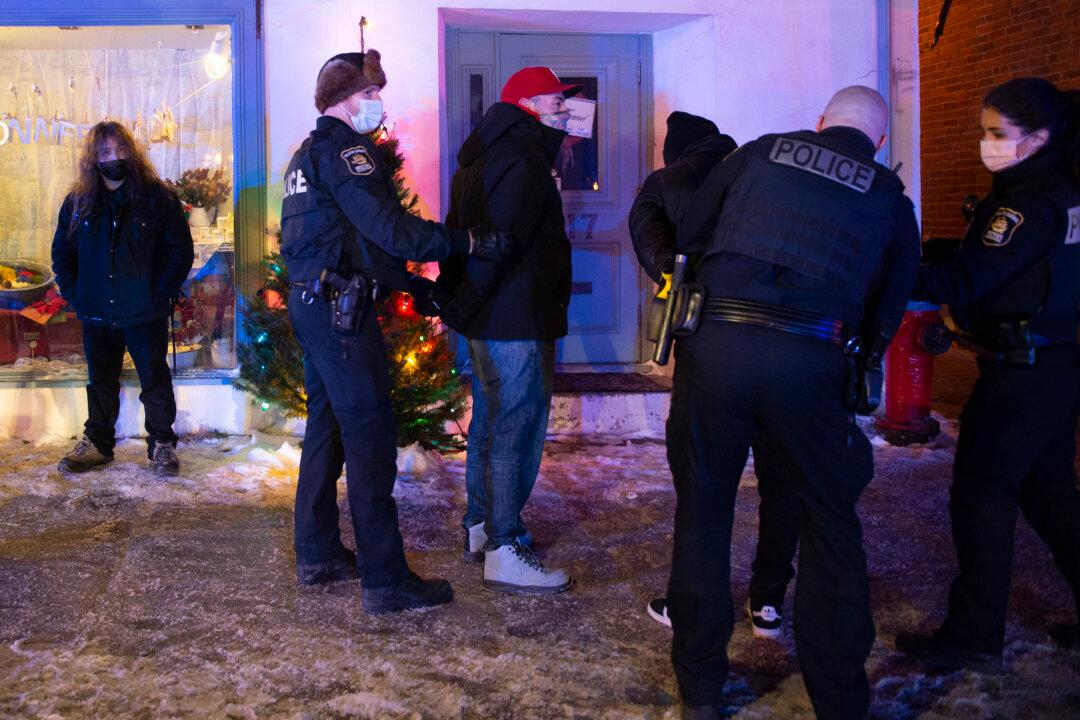Quebec police issued more than 150 tickets to residents who did not comply with the province’s newly enacted curfew measure that began Saturday night, police said.
The curfew, which mandates Quebecers other than exempt groups to stay off from the streets between 8 p.m. and 5 a.m. until Feb. 8, is the latest measure imposed by Quebec Premier Francois Legault, which he says will serve as an “electroshock” for Quebecers to stay home amid the COVID-19 pandemic.





